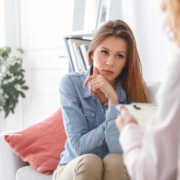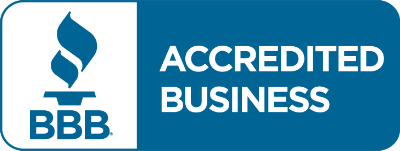Los Angeles | Orange County | San Diego | San Francisco
Opioid withdrawal is one of the most uncomfortable stages of breaking free from an opioid use disorder. Left untreated, many people find themselves unable to make it through this period on their own – but with in-home opioid detox at Kinkaid Private Care, you can find tangible relief from your symptoms from the comfort of your home. But how long does opioid detox take? We’re here to answer your questions and help you get the treatment you need to overcome opioids.
Opioid Withdrawal
Opioid withdrawal is one of the hallmark signs of an opioid use disorder. When people use medications such as opioids (e.g., fentanyl, heroin, morphine, or codeine) for extended periods, their brains and bodies become reliant on the drug to feel normal. When you suddenly stop or cut down your dosage, your body can react viscerally – leading to both physical and psychological withdrawal symptoms.
The symptoms of opioid withdrawal aren’t typically life-threatening, but they can be incredibly uncomfortable and lead people to return to active opioid use. Among others, some of the most common symptoms of opioid withdrawal include:
- Hot and cold flashes
- Nausea
- Diarrhea
- Vomiting
- Goosebumps
- Anxiety
- Restlessness
- Sneezing
- Runny nose
- Stomach pains and cramps
- Intense opioid cravings
Opioid withdrawal is often compared to a severe flu. However, since the symptoms of withdrawal are easily removed if a person gives in to their cravings, many people will return to active opioid use rather than break through the withdrawal phase and achieve recovery. And with neural evidence showing that opioid use disorder changes the structure of your brain, making it more difficult for people to stop using opioids, this is far from a matter of choice.
Thankfully, medical opioid detox at home can substantially reduce these symptoms and make the path to recovery easier. Opioid withdrawal medications target the same receptors in the brain and body as opioids do but to a much lesser degree. In some cases, they can remove the experience of withdrawal entirely.
How Long Does Opioid Detox Take?
Opioid detox typically lasts between ten and twenty-one days, but several factors can influence the length of treatment that you’ll need. No two people share the same path to recovery, and our in-home opioid detox is designed to be flexible enough to account for a wide range of circumstances.
A typical opioid detox treatment plan may be scheduled for two weeks, for instance, but could be extended if you continue to experience uncomfortable and disruptive withdrawal symptoms. At Kinkaid Private Care, our team carefully tracks your progress through the withdrawal period, looking for any emerging symptoms or complications that require further intervention.
The goal for the end of opioid detox is to be free from acute withdrawal symptoms. While some lingering symptoms may remain – often known as post-acute withdrawal – the overwhelming physical symptoms should be entirely removed through the clinical practice of withdrawal management. Withdrawal management uses a combination of medications and treatments to alleviate your symptoms and help you recover in relative comfort.
Factors that Affect Length of Opioid Detox
Dozens of factors can contribute to the length of your opioid detox. As part of the detox process, our medical team will assess several variables that influence the length of treatment, including:
- Type of opioids used
- Frequency of opioid use
- Length of opioid use
- Typical opioid dose
- Non-opioid substance or medication use
- Medical and mental health history
- Time since last opioid use
- Age
- Overall fitness
As you might expect, longer times using opioids at higher doses and frequencies typically require longer treatment periods for a successful detox. Similarly, longer-acting opioids such as methadone have longer withdrawal periods. These factors are merged into a customized treatment plan for in-home opioid detox, ensuring that you have everything you need to reach sobriety in safety and comfort.
Timeline of Untreated Opioid Withdrawal Symptoms
The timeline for opioid withdrawal can provide insight into why opioid detox takes as long as it does. Without appropriate intervention, opioid withdrawal typically follows a trajectory:
Day 1
Opioid withdrawals can begin as early as eight hours after your last dose, though some people may not experience the effects of withdrawal until 24 hours have passed. Symptoms on the first day are generally mild, and may include:
- Feeling irritable
- Headache
- Insomnia
- Cravings
- Depression
Because of how opioids are processed in the body, opioids are still in your system at this point, even if you don’t feel their effects. As the drugs continue to clear, withdrawal symptoms get progressively worse.
Day 2
The second day of opioid withdrawal typically involves progressively worsening symptoms, often beginning to affect you physically as well as mentally. By day two, people can experience symptoms such as:
- Runny nose
- Upset stomach
- Severe anxiety
- Hot and cold flashes
These symptoms are experienced on day one and have often become more frequent and intense at this stage.
Day 3-4
Days three and four are when withdrawal symptoms peak. At this stage, most opioids have been cleared from your body, and the effects of your physical dependence on opioids are experienced in full force. This is when the most severe withdrawal symptoms begin to arise, including:
- Diarrhea
- Vomiting
- Chronic fatigue
- Profuse sweating
- Restlessness
During this phase, symptoms arise frequently, often in waves. The overwhelming nature of symptoms makes it incredibly difficult for people to break free from their addiction without professional intervention.
Days 5+
By the fifth day, the symptoms listed above begin to diminish. Think of opioid withdrawals happening on a curve, where they slowly taper off after their peak. However, symptoms can continue for up to ten or fourteen days.
Once individuals no longer feel the physical symptoms of opioid withdrawal, the acute withdrawal phase is considered finished. Yet, the mental health symptoms related to overcoming opioid addiction may last for months. Many people find ongoing treatment from mental health specialists helpful during this time.
At-Home Detox Treatment Timeline
With in-home opioid detox, you can save yourself from having to experience the worst of opioid withdrawal symptoms. While medical detox cannot eliminate all symptoms, it can make the process rapidly more comfortable and vastly increase your likelihood of achieving sobriety.
Our team uses targeted medications to treat opioid withdrawal. These medications target the same receptors in the brain as opioids do but to a much lesser degree. The result is a significant reduction in withdrawal symptoms without the euphoric or addictive properties of opioids.
Because these medications target opioid receptors, accurate timing of the dose is critical. Typically, people need to have not used opioids for at least 24 hours before taking withdrawal medication, just before the second day of opioid withdrawal.
While this does mean that you may experience mild withdrawal symptoms during the 24 hours of detox, the payoff is not having the severe symptoms of withdrawal. During the next several days of detox, medications are administered regularly by our treatment team, preventing any new symptoms from appearing and keeping you as comfortable as possible.
Throughout detox, these medications are slowly weaned. By the time you have completed your in-home detox, you will have overcome opioid withdrawal and no longer be taking any withdrawal medications.
Start In-Home Opioid Detox at Kinkaid Private Care
Breaking free from an opioid use disorder is never easy. With the help of in-home opioid detox and Kinkaid Private Care’s expert providers, overcome your opioid dependence once and for all – and all from the comfort of your home. Call one of our nurses today at 866-337-4596 or fill out our confidential online contact form to start your initial assessment and take steps toward a lasting and worthwhile recovery.





